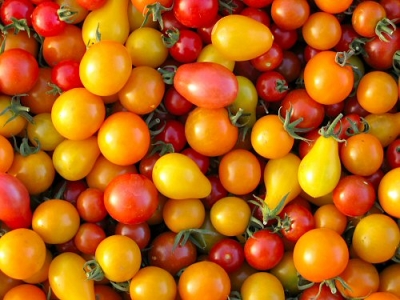Amy and I were at the expecting-a-baby doctor today, and I started telling her about yet another take on the my-tomatoes-are-safe-cause-they’re-local-so-buy-them story from Tennessee.
Some locals farmers told Volunteer TV they,
 “… even use fertilizer that comes from the ground rather than a store. Their fertilizers are made up of layers of manure, weeds and hay.
“… even use fertilizer that comes from the ground rather than a store. Their fertilizers are made up of layers of manure, weeds and hay.
"It helps in killing off the bad bacteria. The worms are working through, turning it into the pure soils all around. The composting happens naturally."
Such statements really need to be verified through microbial testing.
Another farmer said,
"The guinea come through and we let them. They’ll walk through the garden and they don’t eat any of the vegetables, they just eat bugs."
The woman beside us in the doctor waiting room said her father used to have guineas in their garden and it worked real well for bug control.
I pointed out the guineas were also Salmonella factories and would be increasing the dangerous bug load in the gardens growing that fresh produce.
She said they used to have chickens at her farm, but got rid of them cause she got tired of the mess – the poop mess. Then we talked tornadoes.
But lots of others are still talking tomatoes.
Jeff Wilson, Mississippi State University Extension Service, told local media that, “locally grown tomatoes are most likely safe,” but didn’t say why. Maybe he was misquoted.
 Meanwhile, I got to make more friends by telling Forbes that washing off produce is a good precaution, but won’t necessarily safeguard you from a foodborne illness, nor will only buying locally grown fruits and vegetables from the farmers’ market,
Meanwhile, I got to make more friends by telling Forbes that washing off produce is a good precaution, but won’t necessarily safeguard you from a foodborne illness, nor will only buying locally grown fruits and vegetables from the farmers’ market,
“At the farm level, produce can be contaminated in a variety of ways, including contact with untreated manure, infected or polluted water, workers with poor hygiene habits or unclean storage or transportation facilities, Powell says. While local farms may use less transportation and fewer workers, the chances for contamination are still there. And since fresh produce is, of course, uncooked, anything that comes into contact with it can taint it. Once E. coli or Salmonella gets inside a leafy green, tomato or sprout, it’s hard to get rid of it.”
